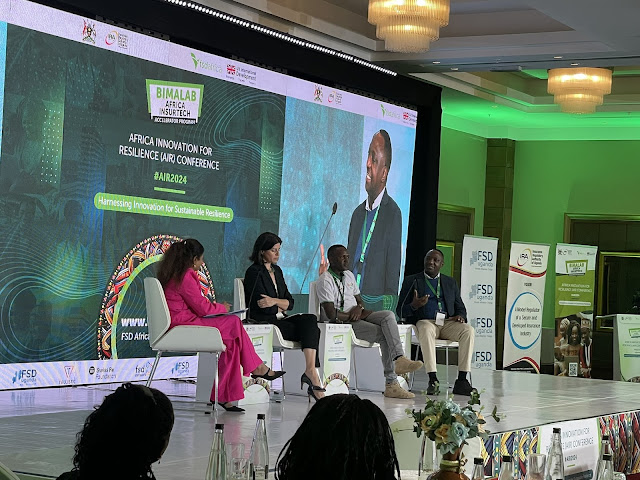𝗜𝗳 𝗙𝗶𝗻𝗮𝗻𝗰𝗲 𝗠𝗶𝗻𝗶𝘀𝘁𝗿𝘆 𝗥𝗲𝗺𝗮𝗶𝗻𝘀 𝗔𝗯𝘀𝗲𝗻𝘁, 𝗔𝗻𝘁𝗶𝗰𝗶𝗽𝗮𝘁𝗼𝗿𝘆 𝗔𝗰𝘁𝗶𝗼𝗻 𝗥𝗶𝘀𝗸𝘀 𝗟𝗼𝘀𝗶𝗻𝗴 𝗕𝘂𝗱𝗴𝗲𝘁 𝗣𝗿𝗶𝗼𝗿𝗶𝘁𝘆
The government of Uganda, in partnership with the Uganda Red Cross Society,
World Food Programme, the
Food and Agriculture
Organization and partners, hosted the 2nd National Dialogue on Anticipatory
Action, under the theme "Navigating Uncertainty: Disaster and Climate Risk
Financing."
Building on the inaugural event
held in November 2022, this year's dialogue aimed to address Uganda's progress
and priorities in the face of escalating climate hazards. The focus was on navigating
uncertainties through proactive measures, highlighting the importance of
anticipatory action in mitigating climate risks, and fostering collaboration to
build resilience.
The event showcased successful
initiatives and lessons learned, while also encouraging public engagement.
Stakeholders emphasized the need for a sustainable, adaptable financing
mechanism to support anticipatory action systems, including a multi-hazard
early warning system that is now producing monthly information to enable
informed and early decision-making.
Notably, Sarah Opendi, the Tororo
Woman MP, expressed her shock that the dialogue had gathered to discuss
anticipatory actions for mitigating climate change impacts, yet the finance
ministry wasn't represented, even though this requires prioritization in budget
allocations. Urging that If the finance ministry is not engaged, this issue
might not become a true priority.
During the Dialogue, Minister of
State for Environment, Hon. Beatrice Anywar called on stakeholders to
collaborate on nature-based solutions and mobilize resources for a sustainable,
resilient future in Uganda.
"There is currently a gap in
terms of who has the authority and responsibility for evacuating people from
disaster-prone areas before an event occurs. Despite this, investing in scaling
up early warning technologies is a critical matter for strengthening
anticipatory actions to prevent disasters," asserted Dr. Brian Kanahe, the
Director of Disaster Risk Management at the Uganda Red Cross Society.
Abdirahman Meygag, WFP
Representative and Country Director in Uganda highlighted that today we have
the tools and technologies to predict and mitigate the natural disasters that
threaten the lives and livelihoods of Uganda's most vulnerable populations.
"If you are talking about
preparedness and mitigation and we do not have an early warning system for
disasters, then you are doing nothing, we in parliament have been working to
put in place a comprehensive disaster management law that will strengthen our
nation's preparedness and response capabilities." said Alex Bakunda
Byarugaba, Isingiro South MP.
Patricia Elotu from UN Women stressed
the urgent need for deliberate interventions targeting women in affected areas,
given that over 77% of women in Uganda are involved in rain-fed agriculture,
which is constantly affected by weather patterns.
Antonio Querido, FAO
Representative in Uganda, emphasized that the early warning system can only be
effective with strong national and community ownership behind it, advocating
for establishing a multi-hazard early warning system for threats like drought,
floods, crop and animal pests, and diseases.
As the frequency and intensity of
hazards continue to increase due to the effects of climate change, the 2nd
National Dialogue on Anticipatory Action underscored the urgency for Uganda to
strengthen its disaster and climate risk financing mechanisms. Stakeholders
remain committed to collaborative efforts that build resilience and secure a
safer future for all.
Story By Patrick Seremba | Sources: Internet
3.png)



Comments
Post a Comment